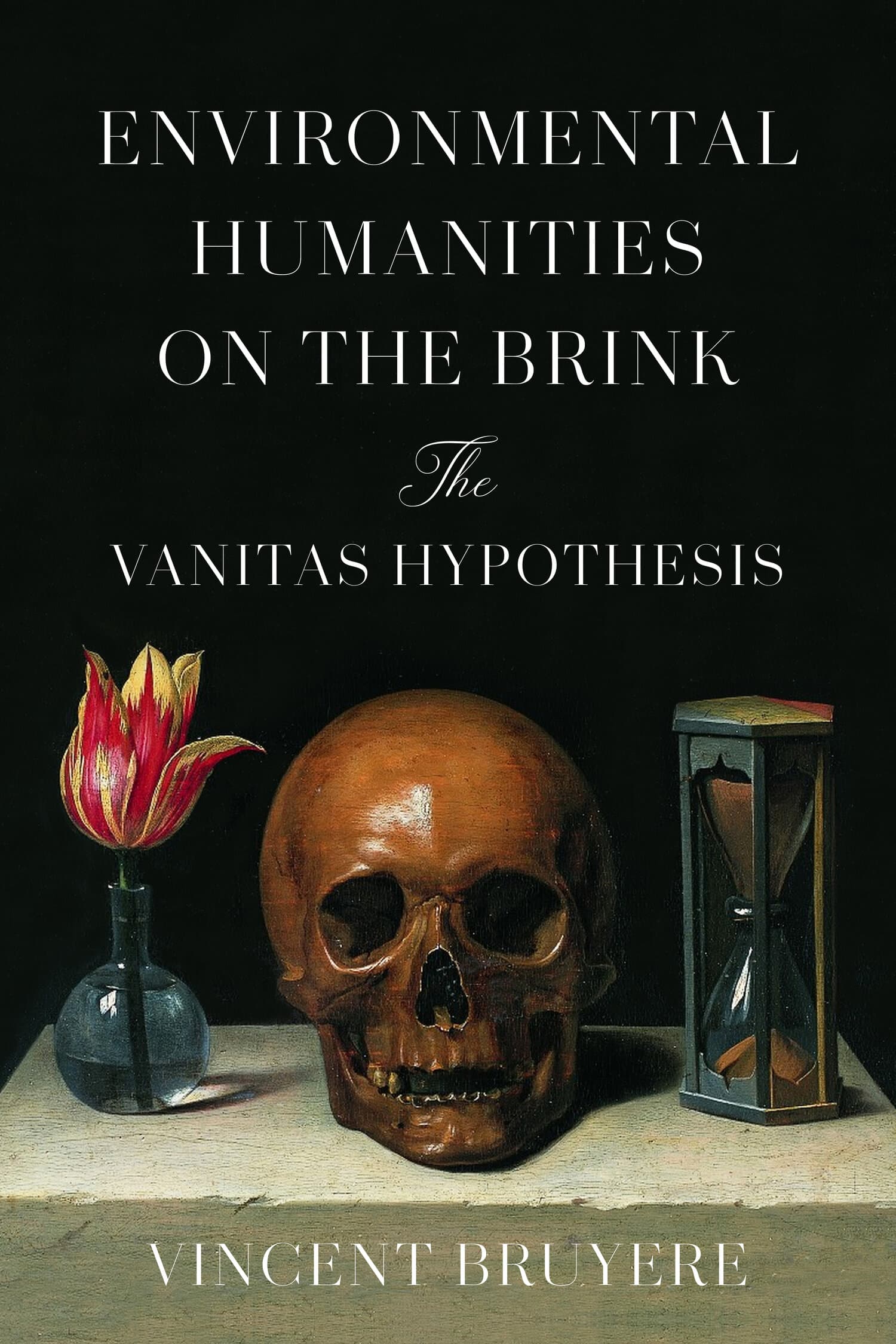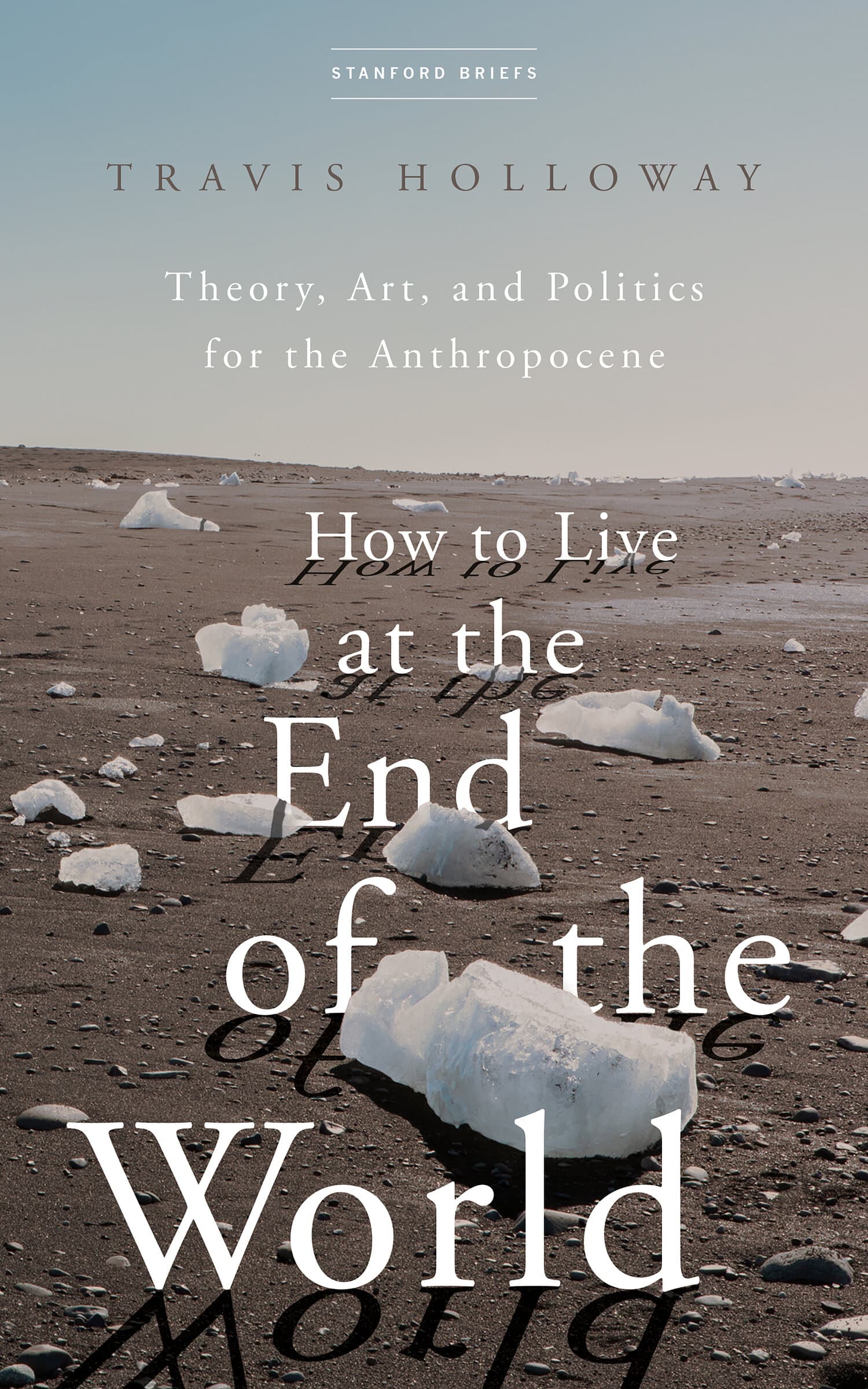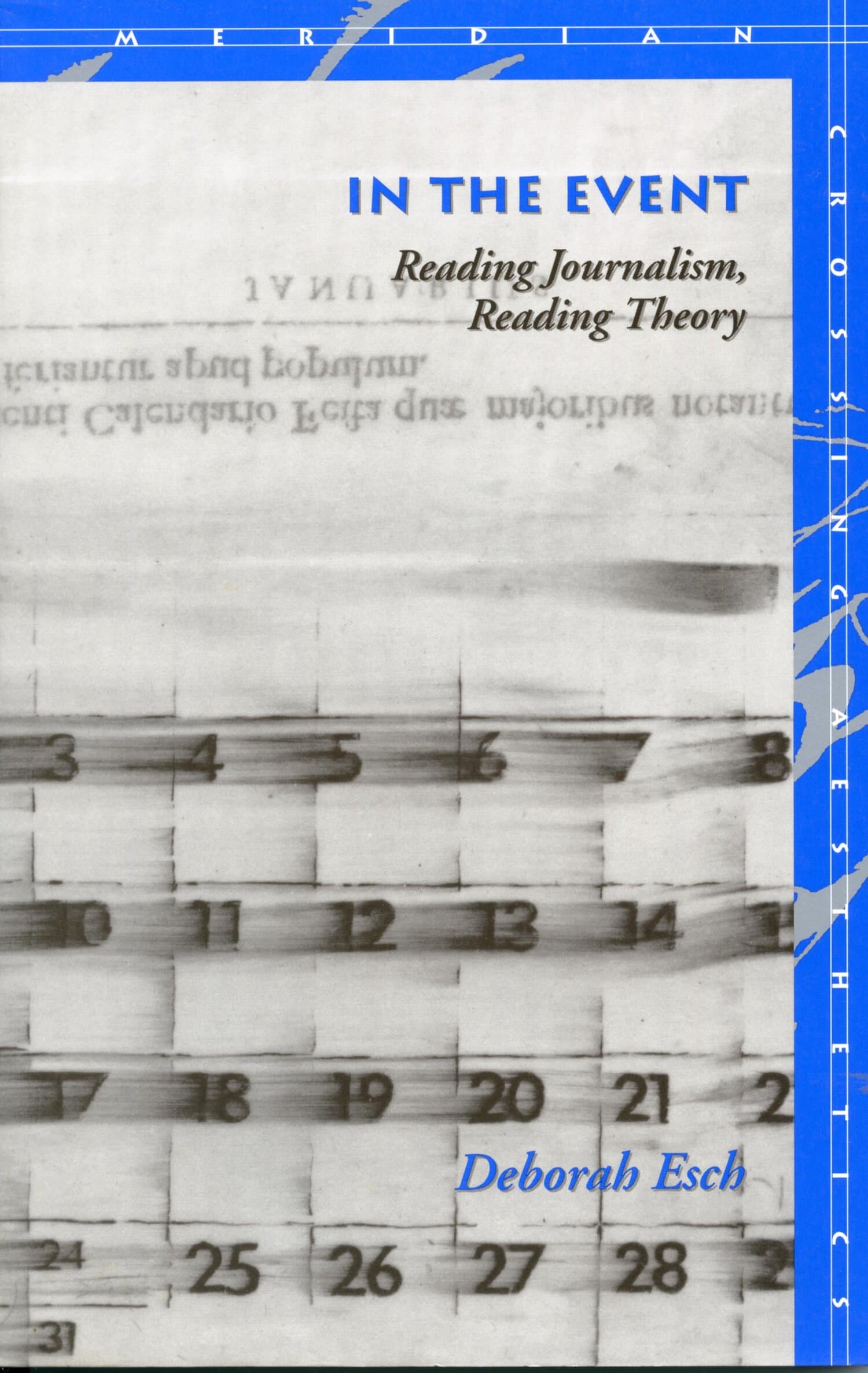Environmental Humanities on the Brink
Also Available from

In this experimental work of ecocriticism, Vincent Bruyere confronts the seeming pointlessness of the humanities amid spectacularly negative future projections of environmental collapse.
The vanitas paintings of the sixteenth and seventeenth centuries dazzlingly depict heaps of riches alongside skulls, shells, and hourglasses. Sometimes even featuring the illusion that their canvases are peeling away, vanitas images openly declare their own pointlessness in relation to the future. This book takes inspiration from the vanitas tradition to fearlessly contemplate the stakes of the humanities in the Anthropocene present, when the accumulated human record could well outlast the climate conditions for our survival. Staging a series of unsettling encounters with early modern texts and images whose claims of relevance have long since expired, Bruyere experiments with the interpretive affordances of allegory and fairytale, still life and travelogues. Each chapter places a vanitas motif—canvas, debris, toxics, paper, ark, meat, and light—in conversation with stories and images of the Anthropocene, from the Pleistocene Park geoengineering project to toxic legacies to in-vitro meat.
Considering questions of quiet erasure and environmental memory, this book argues we ought to keep reading, even by the flickering light of extinction.
—Karen Pinkus, Cornell University
"Concise in form, its arguments well crafted, this book reads with inspired conviction. By way of reading the future past, Bruyere delivers a saga and a symptom of the state of things in the fragile world in which we live."
—Tom Conley, Harvard University
"Timely and provocative, this book deftly and courageously broaches the topic of human extinction while developing truly original philosophical arguments. There is no work that is able to approach the end-of-the-world theme with the pitch-perfect tone Bruyere brings to his discussion."
—Lynne Huffer, Emory University
"Bruyere offers a thought-provoking assessment of the role of humanistic inquiry in a contemporary moment characterized by the impact of humanity on Earth's geology and ecosystems.... The book is an important contribution to discussions on the cultural forms of environmental politics and offers a new kind of environmental responsiveness in humanistic inquiry—one that is attuned to the complex interplay of facts, sediments, conjectures, and contested temporal narratives. Recommended."
—A. Ponce de Leon, CHOICE
"It is one of the many merits of Bruyère's book that it reminds us that the early modern period had many things to say about both precipices and obstacles that can resonate differently and deeply in our own troubled times."—Ellen McClure, H-France Review




